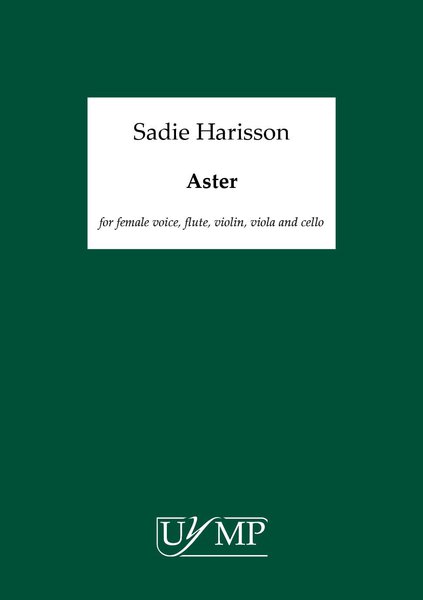Aster selects its six texts from the Greek Anthology, a collection of over four thousand poems collected by Byzantine scholars approximately one thousand years ago. The set of poems date from 7th century BC through until 6th Century AD.
The selected texts are unified by two common themes; the cycle of life, expressed through the interplay between light and dark and the passing from morning to evening, in combination with a characteristically fatalistic approach to the nature of love (this fatalism is seen most vividly in Love the Conqueror and Love the Gambler with their allusions to Venus and Cupid.) The texts also share the topos of Aster, the star, which takes on various guises throughout the settings. The two Aster texts, thought by Keats to be the most perfect of all the Greek Epigrams, concisely focus this conceptual unity and the sentiment of the selected texts.
Though the musical settings vary considerably in mood and texture, there is a three note motif (rising 7th, falling minor 3rd) which symbolizes the star of the text, providing a recurrent leitmotiv throughout the piece. Heard in its basic form at the very opening of the work and again at the end, where it articulates the increasingly melancholic sighs of the lover, the motif is transformed into a triple-time dance in Echo, a multi-layered counterpoint in Love the Conqueror, and, harmonised with 4ths and 5ths it becomes the simple colouristic background in Secret and Love the Gambler.
The piece is prefaced by a quotation from Shakespeare’s Love’s Labours Lost - ‘When love speaks, the Gods in their heavens are made drowsy with the harmony ‘ (Act IV Scene III), which whilst written some thousand years after the last Epigrams, draws together all of the emotional, circumstantial and thematic elements of the piece.
Aster is dedicated to Anthony Pryer.
Aster I * (Plato, c. 429-347 BC) My star, star-gazing?- If only I could be The sky, with all those eyes to stare at you!
Secret (Meleager, c. 140-70 BC) Farewell Morning Star, herald of Dawn, and come quickly as the Evening Star bringing again in secret, he whom thou takest away.
Love the Gambler (Meleager) Still in his mother’s starry lap, a child playing with his dice, In the Morning, Love played my life away.
Echo (Satyrus c.911 - 959 AD) Dear Pan, abide here, drawing the pipes over thy lips, for though wilt find Echo on these sunny greens... Tongueless Echo, along these pastoral slopes makes answering music to the stars with repeating voice.
Love the Conqueror (Meleager) I am downtread with thy foot upon my neck cruel divinity. I know thee by the stars, as I know thee too by thy fiery arrows. But hurling thy brands at my soul will no longer kindle it, for it is all ashes.
Aster II (Plato) You were the Morning star among the living: But now in death your evening lights the dead.
(* Aster, meaning ‘star’, was the boy lover of Plato)
First performance: Greenhouse Ensemble, Lesley Jane Rogers (voice), The Braithwaite Concert Hall, Croydon, 1995.
Commissioned by the Greenhouse Ensemble.
Recorded on Metier Records MSV CD92053


